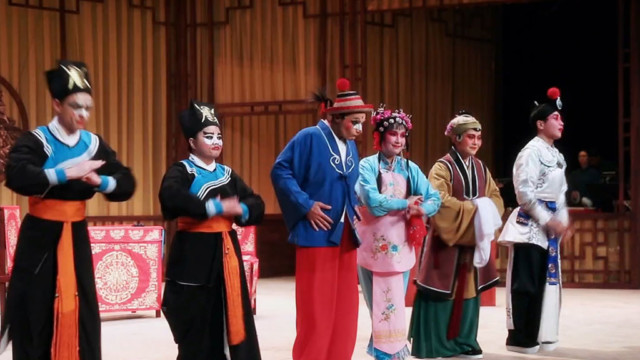University students in Hawaii have been studying ancient Chinese theater for over three decades now.
Sometimes referred to as Chinese Opera, Xiqu, pronounced “shee-chew,” means “theater of lyric-verse for singing.” But it’s much more than that; performing Xiqu requires expertise in speech, martial arts, pantomime, dance and acting.
CGTN’s Nina Edwards visited a group of students at the University of Hawaii at Manoa, who are learning Xiqu from Chinese and American masters.
Every year, the Asian Theater Program at the University of Hawaii at Manoa invites artists from Asia to train students in the ancient traditions of Chinese theater. Also called Xiqu (“shee-chew”), the class is taught every four years.
Elizabeth Wichmann-Walczak has been the director of the Asian Theater Program at the University of Hawaii at Manoa for nearly four decades. She brought the first Chinese teachers to the university in 1984.
“This year I’m absolutely delighted, because we have four major Chinese theater artists from two important forms of Chinese theatre with us training our students for seven months to perform three different plays,” Wichmann-Walczak said.
This year, the students are focusing on two of the three hundred forms of Xiqu: Jingju, which is popularly known as Beijing or Peking Opera in the West, and Chuanju which originated in Sichuan. Jingju is Elizabeth’s specialty. She was the first Westerner to perform Jingju in China.
“I was very fortunate to be among the first group of American scholars and graduate students who got to go to China to conduct research right after the normalization of relations between China and the U.S,” she said.
With an undergraduate degree in Chinese literature, Yungshan Feng is currently working on her MFA in Asian Theater Acting at the University of Hawaii.
“It’s a special place where Eastern and Western cultures meet and people can really share ideas from different countries, different cultural backgrounds,” Feng said.
The diversity of the graduate students in this year’s Xiqu curriculum is a testament to its uniqueness. Maseeh Ganjali immigrated to the United States from Iran when he was 13 years-old.
“I feel at home because it’s another Asian culture that I feel very close to,” Ganjali said.
Xiqu dates back to the early periods of ancient China. Thanks to the dedication of Chinese teachers and an American director, it’s being brought to life by actors from around the world on an island far from the art form’s birth, and the artistic masters could not be prouder.
“You did not see these students at the end of August, the beginning of September when they started doing this they have come so far,” Wichmann-Walczak said.
 CGTN America
CGTN America
